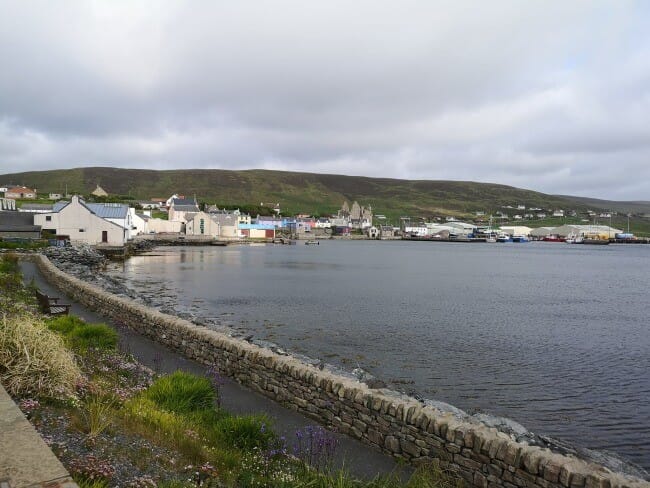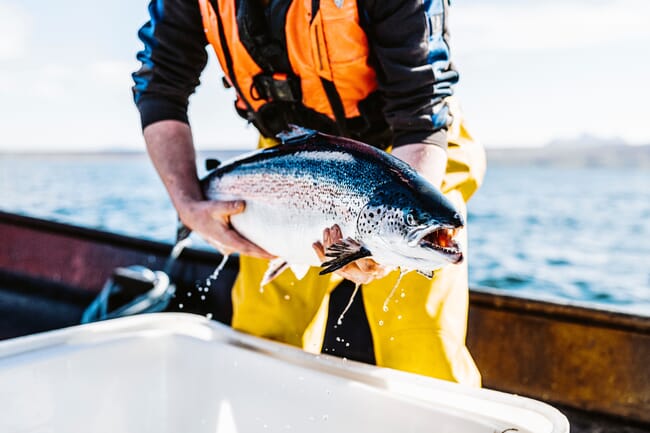
Salmon Scotland believes that a housing shortage in the Highlands and islands is keeping the industry from reaching its potential.
Registers of Scotland data shows that while prices across Scotland rose by 89 percent in 2022 compared to the 2004 baseline, the increase was as high as 168 percent in some remote areas.
The figures, analysed by Salmon Scotland, were above the national average in Argyll and Bute, the Highlands, Orkney, Shetland and the Western Isles.
Salmon Scotland, the trade body for Scotland’s farm-raised sector which sustains 12,500 local jobs and brings in nearly £800 million-a-year for the UK economy, said a housing shortage is holding back real growth in these vulnerable communities.
In many remote parts of Scotland, salmon farms are vital to the future of local businesses and communities.
Farming companies already provide accommodation for 130 employees and their families after buying or renting suitable housing, but many workers simply cannot find homes near where they work.
Salmon Scotland chief executive Tavish Scott highlighted the challenge in a keynote speech at the Rural Housing Scotland conference in Dunkeld.

Salmon Scotland is calling for £10 million of money paid by salmon farmers in government rents to be ringfenced for rural housing. © Scottish Sea Farms
He said that businesses are struggling to recruit and retain workers and is calling for £10 million of the money paid by salmon farmers in government rents to be ringfenced for direct investment in rural housing.
At present, millions of pounds paid by salmon farming companies go to the Crown Estate Scotland – the property company which manages the coastal seabed on behalf of the Scottish Government.
Mr Scott believes that housing supply shortages are not just a problem for the salmon sector, but for the wider rural economy.
As well as house price rises, the situation is exacerbated by the number of empty homes – with the Western Isles reported as having the highest percentage in the country – and properties being snapped up by buy-to-let landlords.
According to recent research by money.co.uk, in Na h-Eileanan Siar, 13.3 percent of dwellings are vacant, while the figure is 10.4 percent in Argyll and Bute, 9.1 percent in both Orkney and Shetland, and 6.7 percent in the Highlands.
Tavish Scott, chief executive of Salmon Scotland, said: “A lack of affordable housing is stopping the Highlands and islands from becoming a northern powerhouse. Salmon farming companies are using their own money to provide warm, comfortable, quality accommodation for people who fill essential roles. We also use rentals, B&Bs and hotels which contribute to the local economy all year round.
“But the salmon sector can’t solve this crisis alone – urgent action is needed to address the most pressing issue we face across the Highlands and islands. That’s why we suggest that £10 million of the money that salmon farmers pay to the landlord Crown Estate Scotland could be invested in tackling the housing crisis.
“The impact of a lack of affordable housing cannot be underestimated – it means not being able to live near where you work, it separates families and contributes to the depopulation of our island communities.
“Salmon Scotland will continue to champion our coastal communities and do everything we can to be part of the solution to one of the biggest problems facing the region.”




